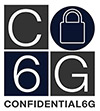Use Case 1:
Predictive maintenance for airline consortium using blockchain-based data sharing platform and federated AI/ML orchestration (ALU, NOK, WIN, UCD)
This use-case implements a platform for secure and trackable data sharing between aviation companies, manufacturers, regulation bodies and other organizations. The main goal is to enable predictive maintenance, driven by AI/ML, on the top of shared data.
Back in 2019. Nokia did an initial PoC together with AirFrance, KLM and Equinix to enable secure data sharing in aviation using Nokia Data Marketplace68 platform. During the PoC, Nokia learned that aviation companies dispose huge amount of valuable data (over 10GB is downloaded from the airplane per one flight), but there is a big problem in using that data in predictive maintenance: algorithms trained on data sets collected by a single company were not precise enough because each individual company has a limited number of certain types of airplane in their fleet (Boeing 737 in that particular case). Additionally, data is very valuable, and companies – that are also competitors on the market – were not willing to share their data easily.
ALU and NOK are hoping to produce a new version of this platform by enhancing it with the results from CONFIDENTIAL6G in the domain of privacy-preserving computation and secure data sharing via blockchain. First of all, the existing ALU blockchain network will be enhanced with confidential Smart Contracts that will include Fully Homomorphic Encryption in order to enable private transactions that log data exchange. Further, federated AI/ML will be applied in order for confidential containers carrying algorithms to be transported over Kubernetes clusters to the edge data centers that are placed near the airports. This is done not only because data is private and it should not leave the premise, but also because in this particular case data is huge, and time for algorithm application is often very short (between two flights), so in many cases it is even not possible to move data centrally.
Finally – FHE and SMPC will be applied to ensure that data set from each organization stays encrypted while the algorithm is applied. As the AI/ML algorithm will be encrypted as well, it will be secured from IPR theft.
This use-case can then be generalized for any kind of collaborative AI/ML platform which includes federated orchestration. It will leverage the secure data exchange enhancements and DLT ZKP privacy developed in WP1 and WP4. It will also use confidential containers with Kubernetes support, and federated AI/ML orchestration developed in WP4.

The key validation: (i) confidential Smart Contracts and transactions in DLT in order to hide information about asset metadata in the data marketplace for aviation consortiums; (ii) blockchain-enhanced access control layer that would enable immutable logs and traces of consent, coupled with blockchain-configured proxy mechanisms; (iii) secure and encrypted metadata transfer to the orchestration layer based on Kubernetes, distributed between aviation companies; (iv) federated AI/ML orchestration that will ensure that computation is brought to the data sets in the edge data centers near the airports in a secure manner; (v) remote attestation and result handling for the applied algorithm for predictive maintenance.
KPIs: (a) a library for writing FHE-enhanced Smart Contracts for at least one popular blockchain framework (Hyperledger Fabric); (b) twofold increase in trustworthiness of container orchestration for multi-party computation; (b) 10% increase in efficiency with federated AI/ML orchestration for large consortiums and large data sets.
